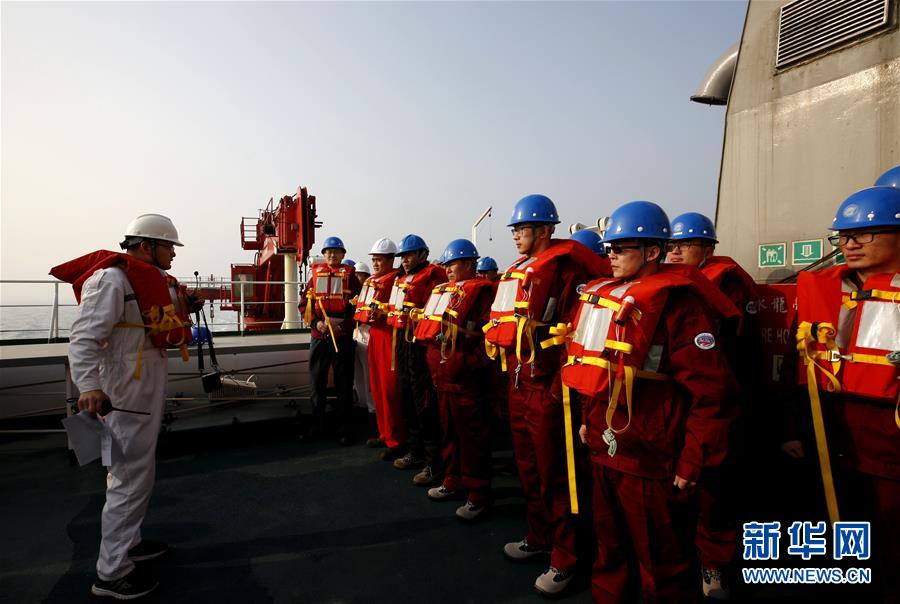
The five functional modules of the operating system are processor management, memory management, device management, file management and operation management. Processor management The most basic function of processor management is to process interrupt events. After configuring the operating system, various events can be processed.
The functions of the computer operating system include: processor management, memory management, device management, file management, job management and other functional modules. Processor management. The most basic function of processor management is to handle interrupt events. The processor can only detect interrupt events and generate interrupts and cannot process them.
Storage management is divided into several functions: storage allocation, storage sharing, storage protection, and storage expansion.Equipment management has the following functions: equipment allocation, equipment transmission control, and equipment independence. File management: file storage space management, directory management, file operation management, file protection.
The operating system should usually include the following five functional modules: (1) Processor management. When multiple programs are running at the same time, solve the problem of processor (cpu) time allocation. ( 2) Operation management. The program to complete an independent task and its required data constitute a task.
The function of the operating system is mainly reflected in the management of computer resources - microprocessors, memory, external devices, files and tasks. The operating system sets this management function into the corresponding program management module, and each management module is responsible for a certain function.That is, the five functions of the operating system.
The operating system has five functions: processor management: mainly controls and manages the work of the CPU. Storage management: mainly carry out memory allocation and management device management: mainly manage basic input and output device file management: responsible for the organization, storage, operation and protection of computer files, etc.

There are the following types of management systems: the management system of the finished product set. This kind of system is a stereotyped management system, which makes a small number of functional adjustments to the software through the parameter settings of the software.
Transaction Processing System (TPS): Operators and supervisors are used to input transactions, events, sort, list, merge updates, output detailed reports, lists and summaries, etc. Management Information System (MIS): Middle managers are used to input general transaction data and simple models to process routine reports.
Adgecal management system Academic management system is one of the most core management systems of the school, which is responsible for arranging and managing the school's teaching activities. It includes curriculum setting, teaching plan, teacher arrangement, examination management and other contents.
VMware vSphere: It is a virtualization management platform that can be used to manage virtual machines, storage and networks, etc. Nagios: It is an open source network monitoring system that can be used to monitor network devices, servers and applications, etc.
Financial subsystem: providing the function of financial management information; Decision support subsystem: make the logistics information system reach a higher level.
ERP management system brand Youyou, Jindie International Software, Wave Software, Dingjie Software, Zhenghang Software. Use friends.
1. System management refers to the information technology system that manages enterprises, and file management is one of the five major functions of the operating system.First, network management refers to the centralized management of resources on the network by network administrators through network management programs.
2. System Management regards organizational components as interrelated and interdependent systems, so it advocates applying the system concept to the management concept.
3. System management refers to the process of maintaining, managing and monitoring computer systems. As an important part of enterprise informatization construction, the importance of computer system management cannot be ignored.
UEFA Champions League standings-APP, download it now, new users will receive a novice gift pack.
The five functional modules of the operating system are processor management, memory management, device management, file management and operation management. Processor management The most basic function of processor management is to process interrupt events. After configuring the operating system, various events can be processed.
The functions of the computer operating system include: processor management, memory management, device management, file management, job management and other functional modules. Processor management. The most basic function of processor management is to handle interrupt events. The processor can only detect interrupt events and generate interrupts and cannot process them.
Storage management is divided into several functions: storage allocation, storage sharing, storage protection, and storage expansion.Equipment management has the following functions: equipment allocation, equipment transmission control, and equipment independence. File management: file storage space management, directory management, file operation management, file protection.
The operating system should usually include the following five functional modules: (1) Processor management. When multiple programs are running at the same time, solve the problem of processor (cpu) time allocation. ( 2) Operation management. The program to complete an independent task and its required data constitute a task.
The function of the operating system is mainly reflected in the management of computer resources - microprocessors, memory, external devices, files and tasks. The operating system sets this management function into the corresponding program management module, and each management module is responsible for a certain function.That is, the five functions of the operating system.
The operating system has five functions: processor management: mainly controls and manages the work of the CPU. Storage management: mainly carry out memory allocation and management device management: mainly manage basic input and output device file management: responsible for the organization, storage, operation and protection of computer files, etc.

There are the following types of management systems: the management system of the finished product set. This kind of system is a stereotyped management system, which makes a small number of functional adjustments to the software through the parameter settings of the software.
Transaction Processing System (TPS): Operators and supervisors are used to input transactions, events, sort, list, merge updates, output detailed reports, lists and summaries, etc. Management Information System (MIS): Middle managers are used to input general transaction data and simple models to process routine reports.
Adgecal management system Academic management system is one of the most core management systems of the school, which is responsible for arranging and managing the school's teaching activities. It includes curriculum setting, teaching plan, teacher arrangement, examination management and other contents.
VMware vSphere: It is a virtualization management platform that can be used to manage virtual machines, storage and networks, etc. Nagios: It is an open source network monitoring system that can be used to monitor network devices, servers and applications, etc.
Financial subsystem: providing the function of financial management information; Decision support subsystem: make the logistics information system reach a higher level.
ERP management system brand Youyou, Jindie International Software, Wave Software, Dingjie Software, Zhenghang Software. Use friends.
1. System management refers to the information technology system that manages enterprises, and file management is one of the five major functions of the operating system.First, network management refers to the centralized management of resources on the network by network administrators through network management programs.
2. System Management regards organizational components as interrelated and interdependent systems, so it advocates applying the system concept to the management concept.
3. System management refers to the process of maintaining, managing and monitoring computer systems. As an important part of enterprise informatization construction, the importance of computer system management cannot be ignored.
UEFA Champions League standings
author: 2025-01-11 03:18bingo plus update today Philippines
author: 2025-01-11 03:10 Europa League app
Europa League app
545.23MB
Check UEFA Champions League
UEFA Champions League
266.97MB
Check Hearthstone Arena class tier list 2024
Hearthstone Arena class tier list 2024
733.63MB
Check Champions League
Champions League
886.35MB
Check casino plus free 100
casino plus free 100
283.15MB
Check Champions League
Champions League
752.32MB
Check Walletinvestor digi plus
Walletinvestor digi plus
156.49MB
Check Hearthstone Wild Decks
Hearthstone Wild Decks
386.78MB
Check Hearthstone arena deck Builder
Hearthstone arena deck Builder
679.13MB
Check App to watch Champions League live free
App to watch Champions League live free
844.45MB
Check Bingo Plus
Bingo Plus
331.36MB
Check Walletinvestor digi plus
Walletinvestor digi plus
371.47MB
Check LR stock price Philippines
LR stock price Philippines
968.56MB
Check UEFA TV
UEFA TV
954.96MB
Check UEFA Champions League live streaming free
UEFA Champions League live streaming free
991.45MB
Check Casino redeem
Casino redeem
267.38MB
Check UEFA live free
UEFA live free
284.43MB
Check Bingo Plus
Bingo Plus
627.78MB
Check Casino Plus login register
Casino Plus login register
856.66MB
Check Free sports events uefa champions league app android
Free sports events uefa champions league app android
449.37MB
Check Bingo Plus
Bingo Plus
486.97MB
Check European Cup live
European Cup live
459.33MB
Check Bingo Plus stock
Bingo Plus stock
592.76MB
Check Hearthstone arena deck Builder
Hearthstone arena deck Builder
963.86MB
Check Hearthstone Arena Tier List
Hearthstone Arena Tier List
356.84MB
Check Bingo Plus
Bingo Plus
659.67MB
Check Hearthstone deck
Hearthstone deck
277.55MB
Check UEFA Europa League
UEFA Europa League
831.86MB
Check UEFA Champions League
UEFA Champions League
832.66MB
Check DigiPlus Philippine
DigiPlus Philippine
144.58MB
Check Casino free 100 no deposit
Casino free 100 no deposit
751.73MB
Check Europa League app
Europa League app
989.68MB
Check UEFA Champions League live streaming free
UEFA Champions League live streaming free
491.84MB
Check Europa League app
Europa League app
792.39MB
Check Casino redeem
Casino redeem
721.45MB
Check Arena Plus login
Arena Plus login
491.57MB
Check
Scan to install
UEFA Champions League standings to discover more
Netizen comments More
1196 LR stock price Philippines
2025-01-11 05:00 recommend
1230 Free sports events uefa champions league app android
2025-01-11 04:12 recommend
1046 bingo plus update today
2025-01-11 03:46 recommend
300 DigiPlus stock
2025-01-11 03:31 recommend
1842 Bingo Plus stock
2025-01-11 02:32 recommend